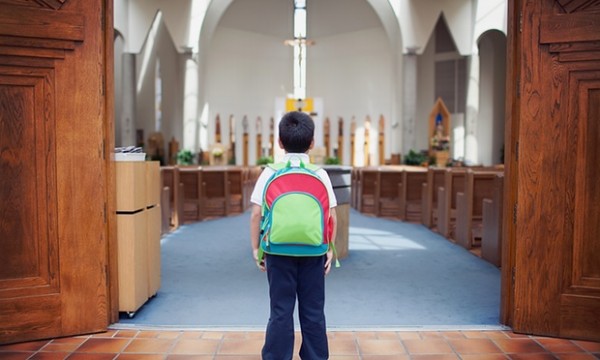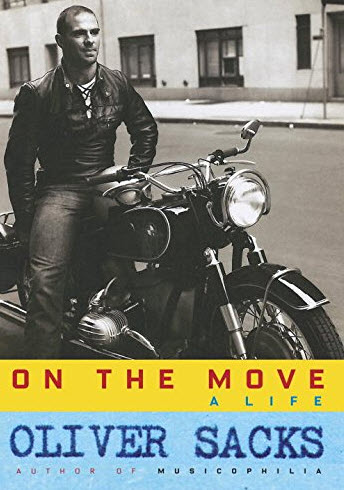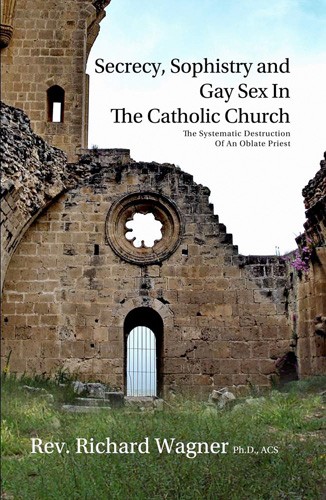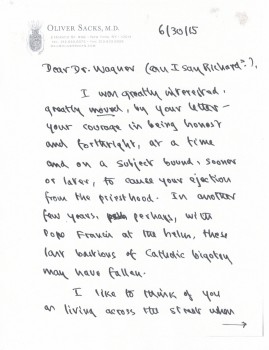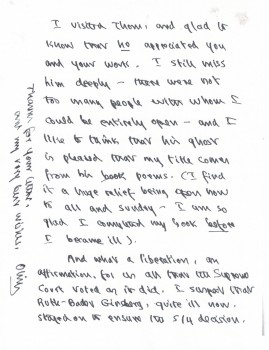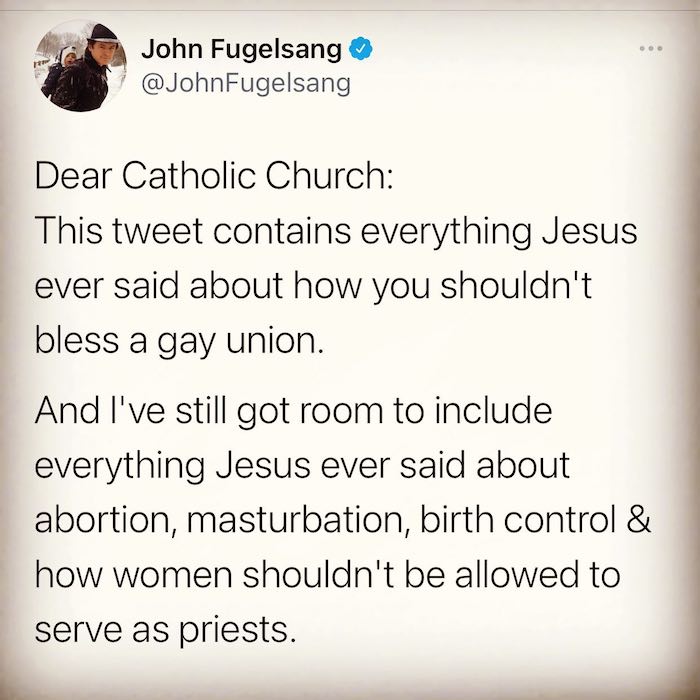
How Can We Win
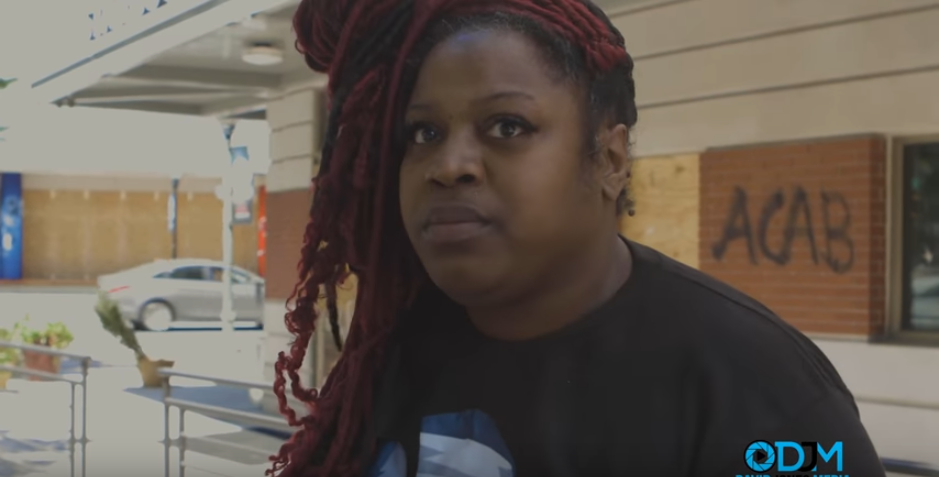
Religious children are meaner than their secular counterparts, study finds
Religious belief appears to have negative influence on children’s altruism and judgments of others’ actions even as parents see them as ‘more empathetic’
Children from religious families are less kind and more punitive than those from non-religious households, according to a new study.
Academics from seven universities across the world studied Christian, Muslim and non-religious children to test the relationship between religion and morality.
They found that religious belief is a negative influence on children’s altruism.
“Overall, our findings … contradict the commonsense and popular assumption that children from religious households are more altruistic and kind towards others,” said the authors of The Negative Association Between Religiousness and Children’s Altruism Across the World, published this week in Current Biology.
“More generally, they call into question whether religion is vital for moral development, supporting the idea that secularisation of moral discourse will not reduce human kindness – in fact, it will do just the opposite.”
Almost 1,200 children, aged between five and 12, in the US, Canada, China, Jordan, Turkey and South Africa participated in the study. Almost 24% were Christian, 43% Muslim, and 27.6% non-religious. The numbers of Jewish, Buddhist, Hindu, agnostic and other children were too small to be statistically valid.
They were asked to choose stickers and then told there were not enough to go round for all children in their school, to see if they would share. They were also shown film of children pushing and bumping one another to gauge their responses.
The findings “robustly demonstrate that children from households identifying as either of the two major world religions (Christianity and Islam) were less altruistic than children from non-religious households”.
Older children, usually those with a longer exposure to religion, “exhibit[ed] the greatest negative relations”.
The study also found that “religiosity affects children’s punitive tendencies”. Children from religious households “frequently appear to be more judgmental of others’ actions”, it said.
Muslim children judged “interpersonal harm as more mean” than children from Christian families, with non-religious children the least judgmental. Muslim children demanded harsher punishment than those from Christian or non-religious homes.
At the same time, the report said that religious parents were more likely than others to consider their children to be “more empathetic and more sensitive to the plight of others”.
The report pointed out that 5.8 billion humans, representing 84% of the worldwide population, identify as religious. “While it is generally accepted that religion contours people’s moral judgments and pro-social behaviour, the relation between religion and morality is a contentious one,” it said.
The report was “a welcome antidote to the presumption that religion is a prerequisite of morality”, said Keith Porteus Wood of the UK National Secular Society.
“It would be interesting to see further research in this area, but we hope this goes some way to undoing the idea that religious ethics are innately superior to the secular outlook. We suspect that people of all faiths and none share similar ethical principles in their day to day lives, albeit may express them differently depending on their worldview.”
According to the respected Pew Research Center, which examines attitudes toward and practices of faith, most people around the world think it is necessary to believe in God to be a moral person. In the US, 53% of adults think that faith in God is necessary to morality, a figure which rose to seven of 10 adults in the Middle East and three-quarters of adults in six African countries surveyed by Pew.
Complete Article HERE!
A Farewell to a great man
I want to take a moment to acknowledge the death of famed British neurologist and author, Oliver Sacks.
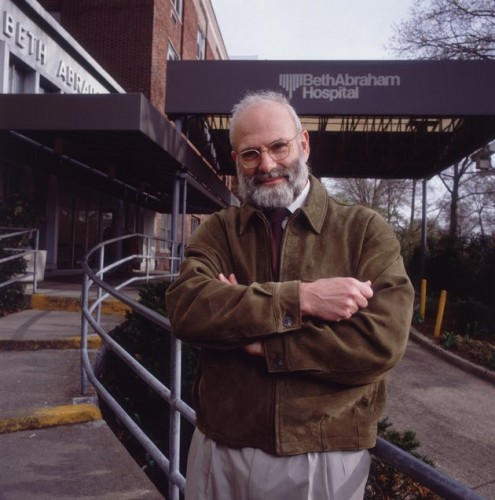
In February, he wrote an op-ed in The New York Times revealing that he was in the late stages of terminal cancer, after earlier melanoma in his eye spread to his liver.
“It is up to me now to choose how to live out the months that remain to me,” he wrote. “I cannot pretend I am without fear. But my predominant feeling is one of gratitude. I have loved and been loved; I have been given much and I have given something in return; I have read and traveled and thought and written. I have had an intercourse with the world, the special intercourse of writers and readers.”
Earlier this summer I read Dr Sacks’s memoir, On the Move. I love it. It’s an interesting memoir by a fascinating personality. And while reading I discovered that we had a dear friend in common, Thom Gunn. What a small world! So I decided to send him a note.
Dear Dr Sacks,
I just finished reading your memoir, On The Move. What an amazing life you’ve lived.
Of all the marvelous things you’ve done and all the fascinating people you mentioned in your book nothing surprised me more than your close friendship with Thom Gunn. I was a friend of Thom too and I lived directly across Cole Street from him. I moved to the flat at 1207 Cole Street in 1979. At the time I was working on my doctorate in clinical sexology at the Institute For The Advanced Study of Human Sexuality in San Francisco.
I didn’t know Thom well at first. However, I would regularly see him walking both in our neighborhood and elsewhere in town. He was always in his leathers, rain or shine, and used to think to myself, “What a mensch!”
It finally dawned on me that he lived across the street from me.
Once he saw me in my roman collar. (I was ordained a catholic priest in 1975 at the age of 25 in Oakland, CA. I had come out to my local superiors; I was a member of the Oblates of Mary Immaculate, before I was ordained. Like I said, I was working on my doctorate to become a sex therapist and prepare for an upfront gay ministry.) Thom smiled at me when he saw me; I blushed and told him what I just told you. He was fascinated, but I also believe he thought I was a twit. He probably was right.
I knew nothing about Thom other than he was my neighbor. Then one day I was in a bookstore on Haight Street and there was a photo of Thom in the window advertising a reading. That’s when I started asking around about him. Despite his cult status within the gay community, he was the most unassuming person. I was honored to have a personal connection with him.
I finished my doctorate in 1981. My dissertation, Gay Catholic Priests; A Study of Cognitive and Affective Dissonance was directed by Wardell Pomeroy. A firestorm of media attention followed. The media branded me as THE gay priest, as if. I think Thom read about me in the New York Times because next time he saw me he clapped me on the back and said, “Well done.”
No sooner did I complete my doctorate, and because of the media attention my public coming out caused, the leadership of my religious community in Rome began a process of dismissal against me. I was devastated and lost. I was even getting death threats. Thom was always so supportive and encouraging.
I fought the church for the next thirteen years in an effort to save my priesthood and ministry. Alas, the writing was on the wall back in 1981 and it was only a matter of time till they had their way with me. I wrote about the travail in a book that was published in 2011, Secrecy, Sophistry and Gay Sex In The Catholic Church: The Systematic Destruction of an Oblate Priest.
Thom was always so solicitous about my wellbeing. He knew how difficult life had become for me. And both of us found ourselves on the forefront of caring for friends who were dying of AIDS. One of my landlords died in 1986.
Thom introduced my housemate and I to Augie Kleinzahler and his girlfriend, Caroline Lander, who lived only a few blocks from us in Cole Valley. We all became great friends and copious amounts of strong drink were consumed. I wonder, do you know Augie?
When Thom turned sixty I surprised him with a homemade German chocolate cake. I told him he was the oldest person I knew. This made him laugh and he called me a whippersnapper.
In 1992 the surviving landlord sold the Cole Street duplex and I and my housemate moved to Oak and Ashbury. Sadly, I didn’t get to see Thom as much as before. I move up here to Seattle in 1999 because I could no longer afford to live in SF. I was deeply saddened to learn of Thom’s death in 2004. He was such a great guy, what a marvelous soul.
Again, thank you for your memoir; it was grand getting to know you on a personal level. I read The Man Who Mistook His Wife for a Hat when it came out in the mid-eighties and loved it. But I never guessed you and Thom knew each other or that you actually visited him when I lived across the street from him. What a small world. I wish I had known you back then.
Anyhow, thank you for the bringing me this unexpected flood of memories of Thom. I wonder what he would have made of yesterday’s Supreme Court decision (Obergefell v. Hodges). I contend that we got marriage equality only because we walked through AIDS first. I think Thom would have agreed with me.
All the best,
richardRichard Wagner, M.Div., Ph.D., ACS
To my astonishment, Oliver wrote back; I mean that literally, a handwritten note. Apparently, he never used a computer.
Dear Dr. Wagner (can I say Richard?), 6/60/15
I am greatly interested and greatly moved, by your letter — your courage in being honest and forthright, at a time and on a subject bound, sooner or later, to cause your ejection from the priesthood. In another few years perhaps, with Pope Francis at the helm, these last bastions of Catholic bigotry may have fallen.
I like to think of you as living across the street when I visited Thom, and glad to know that he appreciated you and your works. I still miss him deeply — there were not too many people with whim I could be entirely open — and I like to think that his ghost is pleased that my title came from his poem. (I find it a huge relief being open now to all and sundry {Oliver came out earlier this year} — I am so glad I completed my book before I became ill).
And what a liberation, an affirmation for us all that the Supreme Court voted as it did. I suspect that Ruth Bader Ginsberg, quite ill now, stayed on to ensure the 5/4 decision.
Thanks for your letter and my very best wishes,
Oliver
Click on this link to see a copy of Oliver Sacks’s note.
Thank you Dr Sacks and farewell!
Chicago’s Cardinal Francis George has Died
The man who figured so prominently in my ordeal with the Oblates of Mary Immaculate is dead. Despite the fact that he and I never saw eye-to-eye; Rest In Peace Francis.

by
After a long bout with cancer, he is gone. It occurs to me, remembering that quote of his (and more on it, here), that we now have an intercessor for our times — an intercessor on the issue of Christian Persecution.
First report, out of the Chicago Tribune:
Cardinal Francis George, the first Chicago native to serve as the local archbishop and a man who during that 17-year tenure became the intellectual leader of the American church, has died after a years long struggle with cancer. He was 78.
Archbishop Blasé Cupich is expected to make an announcement at 2 p.m. at Holy Name Cathedral.
Monsignor Michael Boland, president of Catholic Charities for the archdiocese, released a statement saying, “Today we mourn the loss of an incredible leader, guiding spirit and loyal friend. Cardinal George had compassion for all. You saw this compassion in his eyes as he visited with the poor and most vulnerable in our communities.
Please read the whole story about the fascinating life of this extraordinarily accomplished priest and pastor. I always loved how expressively he shared his thoughts. One of my favorite stories about him was shared by Father Robert Barron, in his excellent book, Catholicism, and which I quoted here:
Fr. Robert Barron recalls a comment made by Chicago’s Cardinal Francis George, who had been asked what he was thinking as he stood on the balcony of St. Peter’s after the election of Benedict XVI. George said, “I was gazing over toward the Circus Maximus, toward the Palatine Hill where the Roman Emperors once resided and reigned and looked down upon the persecution of Christians, and I thought, ‘Where are their successors? . . . But if you want to see the successor of Peter, he is right next to me, smiling and waving at the crowds.’”
There is a wonderful meme I once saw on George that very succinctly spelled out how very impressive he was, in faith, and gifts and life-story. I will try to find it, so check back, because I will have more thoughts and links, shortly.
In the meantime, let us pray: Eternal rest grant unto him, O Lord, and let your perpetual light shine upon him!
Watch his successor, Archbishop Cupich’s statement, and live coverage.
John L. Allen, Jr: The “American Ratzinger” Dies:
George’s abiding passion was the relationship between faith and culture, and especially the urgency of a “New Evangelization,” meaning a new missionary zeal in Catholicism.
After his appointment as archbishop of Chicago in 1997, and especially during his three-year term as president of the US Conference of Catholic Bishops from 2007 to 2010, George was the Vatican’s go-to figure in the United States and one of just a handful of American prelates whose reputation and influence reached around the Catholic world.
Among other aspects of his résumé, George will be remembered as the architect of the US bishops’ battles with the Obama administration over contraception and health care reform, and the leader who made religious freedom a signature concern for the bishops.
His legacy also will be tied to the child sexual abuse scandals in the American Church, both his championing of a “zero tolerance” policy and allegations that he failed to apply that policy himself in a high-profile Chicago case.
Commonweal has full video of George’s last homily.
Archbishop Joseph E. Kurtz of Louisville, Kentucky, president of USCCB, has released a statement:
“The death of an exemplary churchman such as Cardinal Francis George brings much sadness at a time of joy and resurrection. We find peace in knowing that, after so much suffering, he has been raised up with our Lord. As archbishop of Chicago and president of the U.S. bishops’ conference, Cardinal George led as a kindly servant and unmatched intellectual, a man who encouraged everyone to see how God makes us all brother and sister to one another. I join with my brother bishops in thanking God for the gift of his witness and invite all to pray for the faithful repose of his soul.”
Here is the meme I mentioned,
Complete Article HERE!

